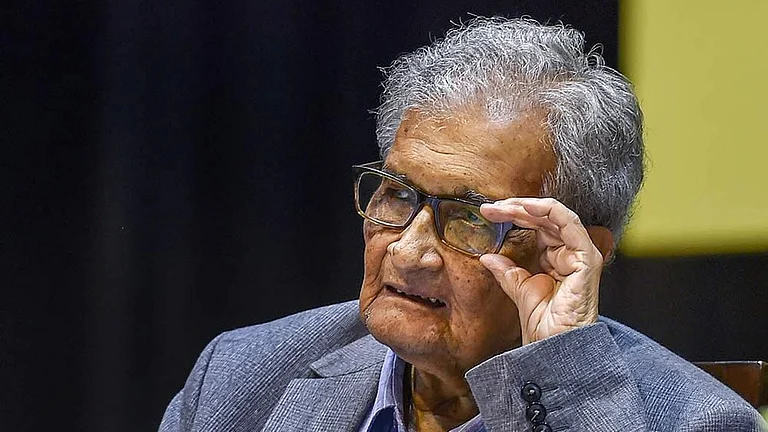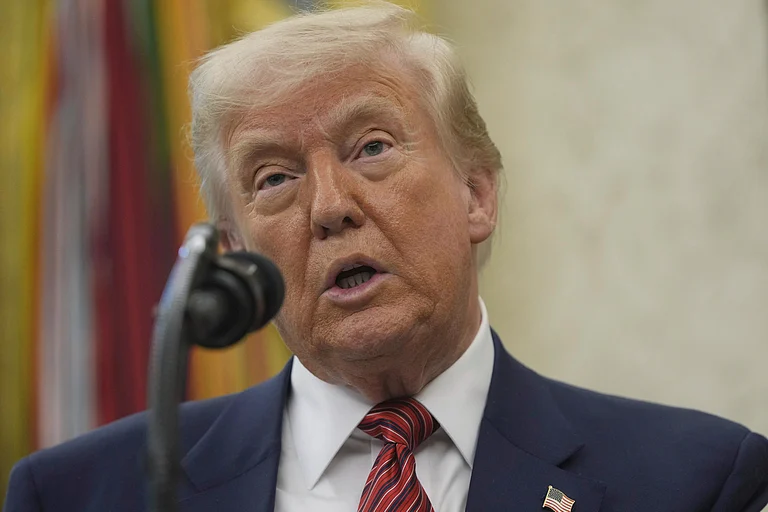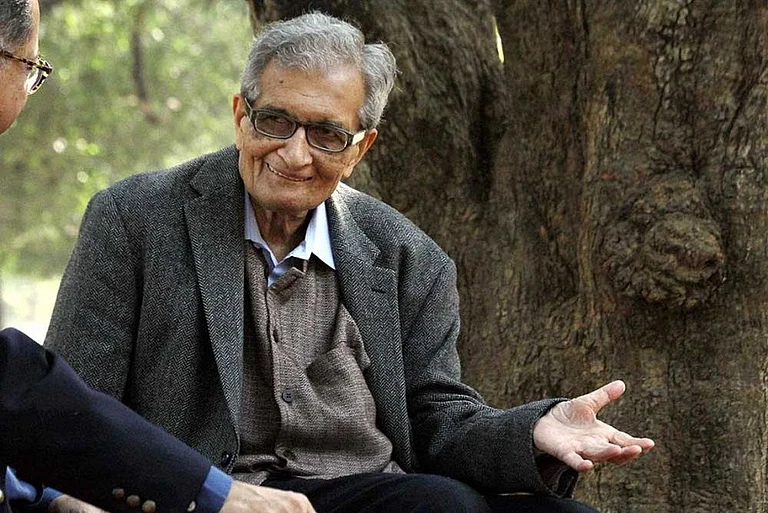Nobel laureate Amartya Sen on Wednesday asserted the recent Lok Sabha poll results point to the fact that India is not a ‘Hindu Rashtra’.
Sen, who arrived in Kolkata from the US in the evening, also expressed displeasure over the “continuation” of putting people behind bars “without trial” even under the new dispensation.
"That India is not a ‘Hindu Rashtra’ only has been reflected in the election results," Sen told a Bengali news channel at the Netaji Subhas Chandra Bose International Airport here.
"We always hope to see a change after every election. Some of what happened earlier (during the BJP-led central government) like putting people behind bars without trial, and widening the gap between the rich and poor, are still continuing. That must stop,” he said.
The eminent economist said there is a need to be politically open-minded, especially when India is a secular country with a secular Constitution.
“I do not think the idea of turning India into a ‘Hindu Rashtra’ is appropriate,” Sen, 90, said.
He was also of the opinion that the new Union cabinet is “a copy of the earlier one”.
“The ministers continue to hold similar portfolios. Despite a slight reshuffle, the politically powerful are still powerful,” he said.
Sen recalled that during his childhood when India was under the British rule, people were jailed without any trial.
“When I was young, many of my uncles and cousins were put in jail without trial. We had hoped that India would be free from this. Congress is also to blame for the fact that this did not stop. They didn't change it... But, this is more in practice under the present government,” the Nobel laureate said.
"... Building the Ram Temple spending so much money... to portray India as a ‘Hindu Rashtra’, which should not have happened in the country of Mahatma Gandhi, Rabindranath Tagore and Netaji Subhas Chandra Bose. It shows an attempt to neglect India’s true identity, and it must change,” he said.
Sen also said that unemployment was on the rise in India, and sectors like primary education and primary healthcare were being neglected.


























